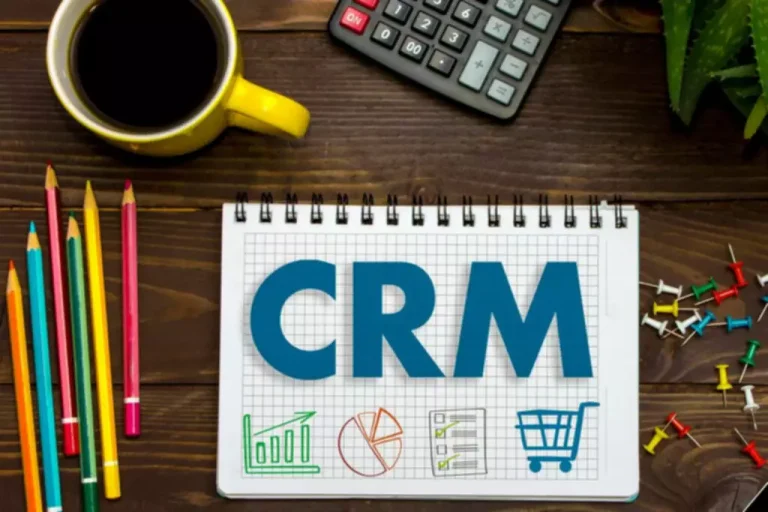Content
Although we cryptocurrency regulations uk would like to hear from you, we cannot represent you until we know that doing so will not create a conflict of interest. Accordingly, please do not send us any information about any legal matter until we authorize you to do so.

The Law Commission’s review of Part 2 of the Landlord and Tenant Act 1954
In October https://www.xcritical.com/ 2023, the Australian treasury announced plans to introduce a regulatory framework, with a draft to be released sometime in 2024. There will be a 12-month transitionary period if the framework is approved and implemented. As of 8 October 2023, new FCA rules governing the promotion of crypto assets, including certain exemptions which are available, will come into force.
EU DECODED: New smoking trends could be affected by more restrictive rules
In January 2022, the government followed up on those efforts with strengthened legislation to address ‘misleading cryptoasset promotions’ and to bring cryptocurrency adverts ‘into line with other financial advertising’. The Task Force has also explored possibilities for the regulation of stablecoins which are currently banned by the FCA. Following its February 2023 consultation and call for evidence on a future financial services regulatory regime for cryptoassets, HM Treasury issued its policy statement on the wider cryptoasset regulatory regime on 30 October 2023. Anti-Money Laundering (AML) The policy update was published alongside a flurry of publications on the regulation of cryptoasset services, including interlinked policy documents covering regulation of fiat-backed stablecoins and the failure of systemic digital settlement asset (DSA) firms. Based on the latest proposals, the most notable difference between the EU’s and UK’s approach to crypto regulation is around exchange and utility token markets.
Top 10 moments for charity law and regulation in 2024
In the UK, in 2020, the government sought views on areas of regulation that needs clarification to support the use of security tokens. In addition, where cryptoassets provide rights or obligations similar to traditional regulated financial instruments, the existing regulatory framework will be applied. This means that cryptoassets that qualify as e-money are already within the EU and UK crypto regulatory perimeter.

What is the current state of crypto regulation in the UK?
These changes follow a government consultation on DSAs in May 2022, which may indicate that the intention is to use these powers to bring stablecoin firms under the scope of a special administration regime. In her first comments since the July 2024 UK general election, EconomicSecretary to the UK Treasury Tulip Siddiq MP delivered a speech at the Tokenisation Summit on 21 November 2024 that outlined the recently elected UKgovernment’s approach to digital asset regulation. In her address, Secretary Siddiq highlighted the government’s commitment to fostering innovation in thefinancial services sector, offering insight into proposals and timing withregard to the government’s planned crypto regulation. South Africa is currently on the FATF’s “Grey List” – a list of countries that have been identified as having failed to implement a substantial number of the FATF’s AML/CFT Standards. Inclusion on the FATF’s Grey List can pose substantial problems for countries reputationally, and can even result in them facing challenges in accessing global financial services.
The foundations of AML and CFT laws can be traced back to the 1980s, with groups like FATF being set up to battle ML and related financial offenses (Tiwari et al. 2020). In the UK, the Proceeds of Crime Act 2002 (PoCA) and the Money Laundering Regulations (MLR) functions as the primary legislation controlling AML responsibilities for financial services providers in the UK (Preller 2008). The original designs were meant for conventional FIAT transactions, but the transition to the digital era necessitated their modification for application in the crypto-asset market. In response to the rapid expansion of crypto-assets and the concomitant transformation of the global financial landscape in recent times, the UK adjusted its AML and CFT framework to encompass crypto-related operations. This involves verifying the identities of their users and assessing the risk of potential illicit activities (Kim 2023).
The domain of crypto-assets witnesses remarkable distinctions in regulatory scope and definition between the UK and Germany. In the UK, crypto-assets fall under the purview of the FCA and are categorized as specified investments. This classification encompasses various crypto-asset types, including security tokens, utility tokens and cryptocurrencies (payment tokens) like BTC and ETH. Such a systematic approach provides much-needed clarity and enables effective oversight (Özelli 2021).
However, as the crypto industry is constantly changing, the regulatory environments in both countries may evolve during the research process. After passing the bill to regulate and recognize crypto as regulated financial activity in June 2023, the market of crypto-assets has grown significantly. Based on raw cryptocurrency transaction volume, the UK has become the world’s third-largest economy after the USA and India (Vardai 2023). Before the regulatory changes in 2022, the revenue obtained from cryptocurrencies in the UK averaged $0.89 billion.
The consultation closed on 26 April 2021 and the government published its initial response here. HM Treasury has set out its final proposals for the UK’s future financial services regulatory regime for cryptoassets, confirming its intention to bring a number of crypto activities into the regulatory perimeter for the first time. The legislation to facilitate the bringing of stablecoins and cryptoassets into financial services regulation, the Financial Services and Markets Act 2023 (FSMA 2023), received Royal Assent on 29 June 2023. This order expanded the scope of the UK regulatory perimeter to include certain types of crypto assets, such as security tokens and e-money tokens, as well as certain activities involving crypto assets, such as issuing, dealing, arranging, advising and managing. This means that firms that carry out these activities in relation to these crypto assets in the UK need to be authorised by the FCA and comply with the relevant rules and requirements, such as the conduct of business, capital adequacy and financial crime prevention. In the future, however, it is likely that the UK will diverge from EU cryptocurrency regulations to some degree.
- Look no further than the vast array of crypto companies based in the Bahamas, Switzerland, and Japan for proof of regulatory clarity benefiting national economies.
- In South Korea, cryptocurrency exchanges and other virtual asset service providers must register with the Korea Financial Intelligence Unit (KFIU), a division of the Financial Services Commission (FSC).
- By following these regulations, providers of crypto-asset services play a significant role in preventing illegal financial activities and ML thus strengthening the integrity of the overall financial system.
- He has helped prepare defences to money laundering charges, POCA enforcement, civil claims under FMSA 2000, US Department of Justice investigations, and Part 2 extradition requests.
- The country aims to find an equilibrium between embracing the benefits of blockchain and crypto-assets while also ensuring financial stability and safeguarding the interests of investors.
There are cryptocurrency-specific reporting requirements relating to Know Your Client (KYC) standards, as well as anti-money laundering (AML) and combating the financing of terrorism (CFT). Although investors still pay capital gains tax on crypto trading profits, more broadly, taxability depends on the crypto activities undertaken and who engages in the transaction. Crypto operations have to implement AML regulations and controls like other financial sectors. Organizations serving in the crypto industry must fulfill their AML and KYC obligations during customer account opening. Sanction Scanner’s products automate the AML compliance processes of UK crypto exchange companies with powerful and flexible API support. Besides, crypto businesses can offer their customers an excellent experience while reducing false positives and manual transactions.
Fintech Frontlines features research and analysis on issues of financial technology from the GeoEconomics Center. Cryptocurrency is legal throughout most of the European Union (EU), although exchange governance depends on individual member states. Meanwhile, taxation also varies by country within the EU and ranges from 0% to about 48%. Central Bank Digital Currencies (CBDCs) are issued by central banks and backed by governments. Cryptocurrencies are decentralized by definition and are not CBDCs, so CBDCs are not discussed in this article. Regarding other key changes, interested parties will be well advised to keep abreast of regulatory updates from HM Treasury and the FCA, given their broad statutory powers to regulate in the cryptoasset space.
To gather data the researcher reviewed legal documents such as statutes, regulations, guidelines, official reports and policy papers related to crypto-asset regulation in the UK and Germany. Collected data were thematically analysed to identify recurring themes, patterns and key regulatory elements. To ensure the accuracy and dependability of the findings a triangulation method was employed, incorporating data sources such as documents and case studies. This analysis aided in understanding the factors that influence crypto-asset regulations in each country.

Cryptocurrencies have given rise to an entire new criminal industry – Mark Watson discusses regulation of cryptocurrencies in light of the Terra and Luna ‘crashes’. Customer onboarding agility can help crypto exchanges accelerate verification, reduce abandonment and improve conversion rates. Crypto assets unlock faster settlement, remove credit risk and drop settlement times to near zero, it’s a huge win for commerce and the UK has set the intent it will take the front foot.

